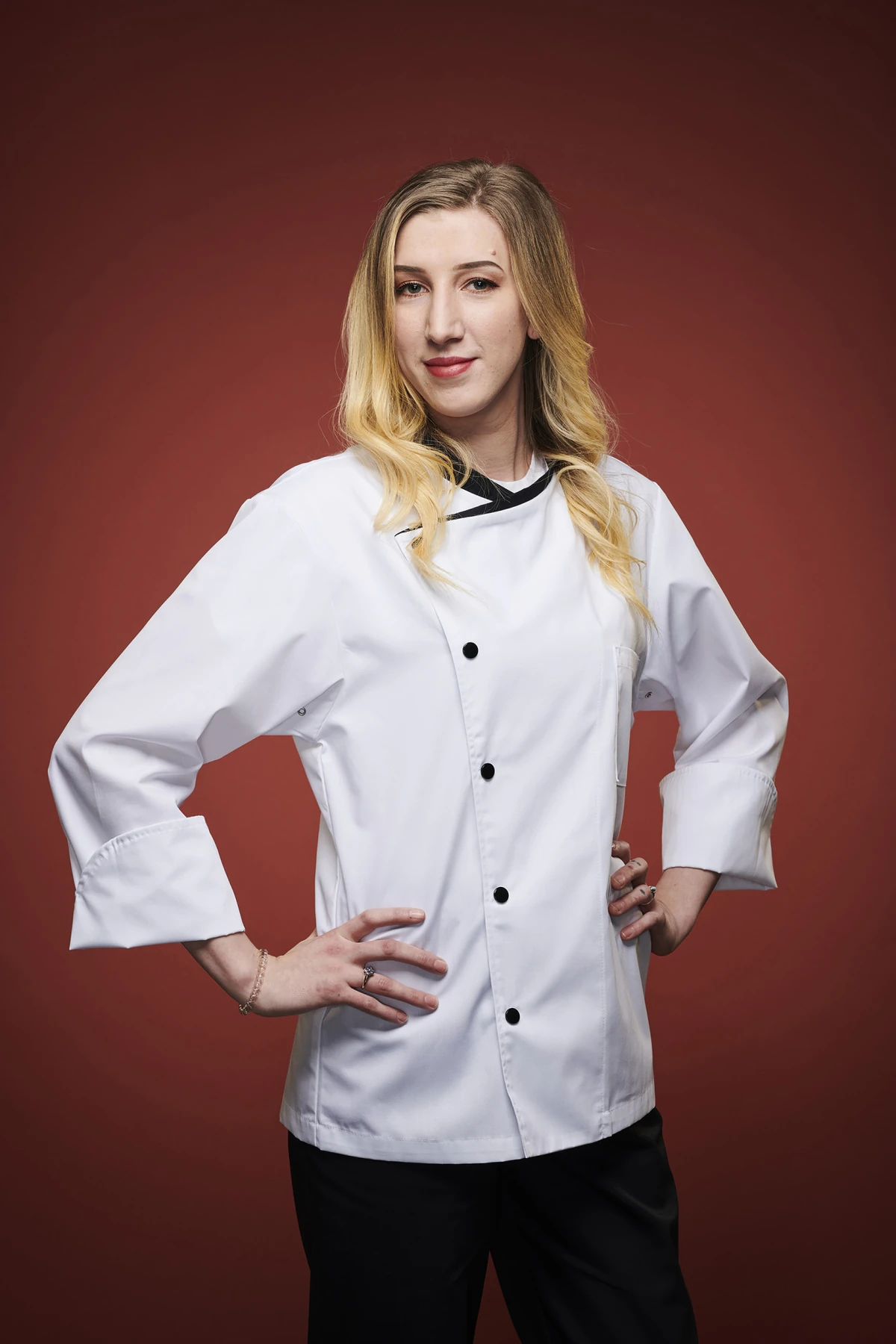Culinary director
Nicole Hanna

‘I remember this really poignant moment where I was making pizza dough, and all my senses were activated. It was intoxicating,’ reflects chef Nicole Hanna. ‘I realized that this environment feels good to my mind, body and heart.’ (Courtesy photo)Nicole Hanna would never have guessed that her origins as a line cook at The Wolfeboro Inn would put her on a trajectory that would land her in front of celebrity chef Gordon Ramsay on the television series “Hell’s Kitchen.” After two years at the inn, Hanna joined the show’s 19th season, where she made it to the final six contestants. These days, Hanna resides in New York, where she works as culinary director for CB5 Hospitality, crafting menus and training culinary staff for hospitality facilities across the country.
Q. How did you get involved with the culinary industry?
A. It was sort of an accident. I was a certified brain injury specialist working in human services. I had a friend that worked at The Wolfeboro Inn — they needed a prep cook. I’ve always loved cooking, so I took the job. After two years, I was just on the brink of becoming sous chef when I got the call to do “Hell’s Kitchen.” I had never seen the show, so I didn’t know what I was getting myself into. I was on such a tear where I wanted to become a chef, so I said yes, absolutely.
But I didn’t realize at the time that I would be competing with world-class, executive chefs, and I’m a little tiny, baby line cook. When I got there, I looked around on the first day and, you see on the first or second episode, I had a full-blown panic attack because I had a moment of self-doubt and imposter syndrome. I didn’t have the traditional chef trajectory; no culinary school or anything like that. I sort of had to pave my own way.
Q. Did you have any mentors that helped you grow?
A. When I was young, I always wanted to become a chef. When I did enter the field, Hoke Wilson (regional executive chef for Hay Creek Hotels, based in Exeter) was my very first executive chef. I still consider him my mentor. He really supported me in everything I did. He was my cheerleader, kept me going, kept me motivated. I went through a job change recently, and my first phone call was to Hoke.
Q. What happened after “Hell’s Kitchen”?
A. I went right back to working at The Wolfeboro Inn like nothing ever happened. The company is operated by this hospitality management company that were opening other properties across the country. Hoke said I was a good candidate. So that’s what I did after the show, and then it was Covid and everything went away.
Q. What was that like for you?
A. For the hospitality industry in particular, Covid really shook everybody to their core. People who are in leadership positions in the industry were all realizing that we need to make a change in terms of work-life balance and how people are being treated and really supporting and having more integrity in the way we treat our staff. I’m still passionate about what I do, but I have a strong feeling that I need to reshape what it means to be a member of the hospitality industry and encourage people to advocate for themselves better than they would have before (the pandemic).
Q. What advice do you have for aspiring chefs?
A. You have to fully commit to it, especially in the beginning. The things I try to nurture in my staff and the people that I train is to advocate for yourself, always. Respect your own boundaries, set boundaries with your managers, make sure that you’re being mindful of what your body and brain need to be healthy. If you’re not speaking for yourself, you can’t expect that anybody else will, especially in an industry where the demand is high, the volume is high, the hours are long, the nights are late, your weekends and holidays are taken away. Make sure that you are keeping yourself healthy and balanced enough to survive it, because you’re going to be working really hard for really long to become a chef.
I implore managers and chefs to be more cognizant of it and put a concerted effort into being a good sounding board for staff members — it builds a better team. At the end of the day, everybody is going to be way happier and feel more connected and communicative with each other if the doors are always open.